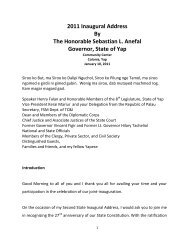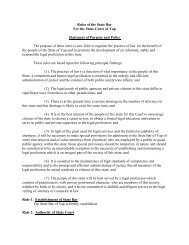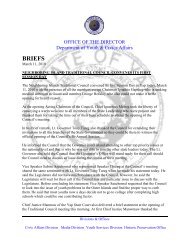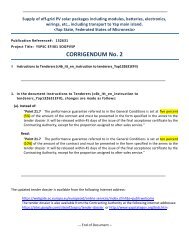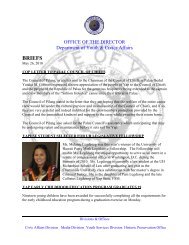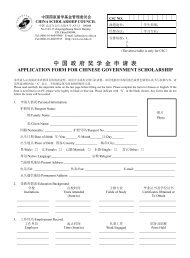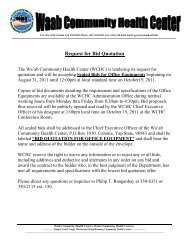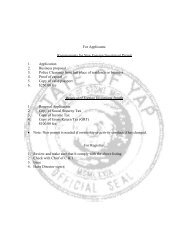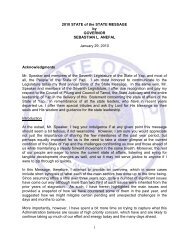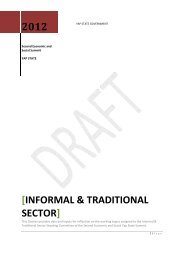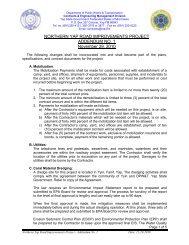RULES OF CIVIL PROCEDURE For the Trial Division of the Yap ...
RULES OF CIVIL PROCEDURE For the Trial Division of the Yap ...
RULES OF CIVIL PROCEDURE For the Trial Division of the Yap ...
You also want an ePaper? Increase the reach of your titles
YUMPU automatically turns print PDFs into web optimized ePapers that Google loves.
(B) if <strong>the</strong> pleading is one to which a responsive pleading is required, 30<br />
days after service <strong>of</strong> a responsive pleading or 30 days after service <strong>of</strong> a motion<br />
under Rule 12(b), (e), or (f), whichever is earlier.<br />
(2) O<strong>the</strong>r Amendments.<br />
In all o<strong>the</strong>r cases, a party may amend its pleading only with <strong>the</strong> opposing party's<br />
written consent or <strong>the</strong> court's leave. The court should freely give leave when justice so<br />
requires.<br />
(3) Time to Respond.<br />
Unless <strong>the</strong> court orders o<strong>the</strong>rwise, any required response to an amended pleading<br />
must be made within <strong>the</strong> time remaining to respond to <strong>the</strong> original pleading or within 14<br />
10 days after service <strong>of</strong> <strong>the</strong> amended pleading, whichever is later.<br />
(b) Amendments During and After <strong>Trial</strong>.<br />
(1) Based on an Objection at <strong>Trial</strong>.<br />
If, at trial, a party objects that evidence is not within <strong>the</strong> issues raised in<br />
<strong>the</strong> pleadings, <strong>the</strong> court may permit <strong>the</strong> pleadings to be amended. The court<br />
should freely permit an amendment when doing so will aid in presenting <strong>the</strong><br />
merits and <strong>the</strong> objecting party fails to satisfy <strong>the</strong> court that <strong>the</strong> evidence would<br />
prejudice that party's action or defense on <strong>the</strong> merits. The court may grant a<br />
continuance to enable <strong>the</strong> objecting party to meet <strong>the</strong> evidence.<br />
(2) <strong>For</strong> Issues Tried by Consent.<br />
When an issue not raised by <strong>the</strong> pleadings is tried by <strong>the</strong> parties' express or<br />
implied consent, it must be treated in all respects as if raised in <strong>the</strong> pleadings. A<br />
party may move — at any time, even after judgment — to amend <strong>the</strong> pleadings to<br />
conform <strong>the</strong>m to <strong>the</strong> evidence and to raise an unpleaded issue. But failure to<br />
amend does not affect <strong>the</strong> result <strong>of</strong> <strong>the</strong> trial <strong>of</strong> that issue.<br />
(c) Relation Back <strong>of</strong> Amendments.<br />
(1) When an Amendment Relates Back.<br />
when:<br />
An amendment to a pleading relates back to <strong>the</strong> date <strong>of</strong> <strong>the</strong> original pleading<br />
(A) <strong>the</strong> amendment asserts a claim or defense that arose out <strong>of</strong> <strong>the</strong><br />
conduct, transaction, or occurrence set out — or attempted to be set out — in <strong>the</strong><br />
original pleading; or



